|
Post by: Jason Carr, Former Pet Health Network Editor-in-Chief If you’ve ever spent time online you know that most people just can’t get enough of those bizarre cat quirks. Some feline habits are adorable and endearing, while others are confusing and even dangerous. If you’ve ever wondered about certain, strange cat behaviors, you’ve come to the right place to learn. Why Cats StareSo why is my cat staring at me? Most likely, your cat is checking you out and stalking you. While I don’t want to anthropomorphize what’s really going on in your cat’s head while she stares at you, I often feel it’s due to the predator’s instinct. Chalk this up with your cat’s curious nature. Your cat is staring as she literally checks you over. Personally, I believe cats are trying to mind control us into feeding them. "I’m staring at you so you feel guilty and feed me more." Don’t fall for it – give them some entertainment and environment enrichment instead, and let them take out their predator’s stare on a Buster® Cube or Roll-a-Treat ball instead. Medical causes of staring Rarely, medical causes can result in the staring appearance. Several leading causes of death in cats may be associated, including chronic medical problems such as: If untreated, severe hypertension (e.g., high blood pressure) can result. Normal systolic blood pressure for a cat should be approximately 120 mm Hg (similar to humans); if it climbs over 180-200 mm Hg, ocular injury can occur. With high blood pressure, the retina (the “film” of the back of the eye that causes the appearance of “red eye” can detach [called a retinal detachment], causing a dilated pupil. It may look like your cat is staring. If you notice constantly dilated pupils and staring, get to a veterinarian for a blood pressure check. Otherwise, chalk it up to your cat’s predatory drive and attempt to guilt you into something… Why Cats Sleep So MuchRecently, I was watching my own cats as they slept and thought to myself “I wish I could sleep like a cat!” I love to sleep and nap. I bet you do too. (Do you remember when getting you to bed was a battle royale with your parents?) Domestic cats can rarely be accused of overexerting themselves. Cats seem genetically programmed to sleep. In fact, cats can sleep as much as 16 hrs a day and older cats may sleep 18-20 hrs a day1! Why all this sleep? Sleeping helps cats conserve energy, but they probably are not “sleeping” as much as you think. Sleeping, snoozing or “resting their eyes” — while all of these forms of sleeping may look alike, about 75% of a cat’s sleeping time is in “light sleep.” They are easily awakened when they need to be (for example, to protect themselves or to take advantage of a meal). You can recognize when cats are in light sleep because their ears twitch and respond to sound even if their eyes do not open. Cats are capable of sleeping when they are in a sitting position. (That’s not so special!) Cats do sleep deeply sometimes. About 25% of their sleeping time is spent in very deep sleep. Some older cats may sleep deeply as much as 40% of the time. (Sound good to you?) Cats also have a unique sleep/wake cycle. Learn more about it here. Sleeping behavior One of the things I still enjoy most is watching my cats as they dream. They seem to run in their sleep at times and often chatter and vocalize— they may be chasing an imaginary butterfly or lizard. It is common for cats to snore when sleeping. My own cat will often cover his eyes and in a few minutes he is sawing proverbial logs. All of these sleep associated behaviors of cats are normal to one degree or other. It is important as with other behaviors to be familiar with what is normal for your cat. Changes in sleep habits can be associated with a variety of factors, but should be observed and evaluated by your veterinarian as part of your cat's annual physical evaluation. Why Cats Chew Electrical CordsA dangerous household item cats often chew is electrical cord and wire. As with plastic bags, cats can find the oral sensation of chewing on cords pleasant. Kittens in particular can chew cords as part of their exploratory development. Chewing on cords is a dangerous activity that should be actively prevented as it presents a choking hazard, as well as the possibility of injury and death from electrocution. It also can obviously damage your household electronics and cause electrical fires. What’s so great about chewing cords? One reason that cats will chew cords can be related to their dental health, and if you find your cat engaging in these activities, a trip to the veterinarian to make sure her teeth are in good order is important. You may also want to discuss with your veterinarian your cat’s diet, as chewing on odd objects can be a symptom of insufficiency in daily dietary needs. Finally, boredom can be a major factor in habits like these. You should adopt a plan combining management (to keep your cat safe) and enrichment (to engage physical and mental needs). Tips to keep your cat from chewing cords.
Why Cats "Talk"Talking to our cats is often a normal part of our relationship with them. We chat away while not really expecting that they understand our complex sentences or even some of our succinct commands. Yet when they ‘talk’ to us, we are often frustrated by our inability to interpret their meaning or intention. This is especially true with our feline friends. Why is your cat talking to you? Is she upset or not? What does she want or need? Cats do talk Firstly, your cat may be perfectly fine. This is most often the case. Individual cats have their own unique personalities. Some are chatty and some are not. There are even certain breeds (like Siamese cats) that tend, by nature, to be more vocal. Certainly there are times when it’s absolutely normal for a cat to be more vocal (like when there are other strange cats in the vicinity or during breeding season) — especially if your cat has not been spayed or neutered. You know your cat better than anyone. That makes you the best authority on what is normal and also puts you in the best position to notice any increase in your cat’s vocalization patterns or habits. If your cat is talking more, what are the possible reasons for that change? Could my talking cat be trying to tell me something is wrong? Pain or discomfort can certainly make your cat cry out – whether it’s due to hunger or thirst, injury or arthritis, or even weakness. Your cat may be crying or talking more in order to put a voice to her physical distress. If you think your cat’s vocalizations may indicate a physical problem, consult your veterinarian to explore those possibilities. My cat’s a senior. Could she be “senile?” As is the case with humans, altered perception can result in increased vocalization. This tends to be especially true of older cats and often times is more apparent (or just more bothersome) at night. Just like us, as our cats age, they can experience diminished vision or hearing and may even develop cognitive dysfunction or senility. There are medications that may help with confusion and senility. If your cat cannot see, hear or even smell or simply becomes confused by her surroundings, she may cry out. Some owners might not immediately recognize impending hearing or vision loss in a cat; fortunately, routine testing could reveal these types of problems and some causes of diminished sight can be treated (like cataracts). Absolutely mention these concerns when you take your cat in for her checkups. You might also consider keeping your cat closer to you at night, leaving nightlights on and maybe even playing music. What other medical conditions would cause cats to talk more? Other physiological disorders that can cause increased crying and meowing in cats include:
Why Cats Chew Plastic BagsQuestions that can come up when working with families that have cats in their households, are often about a cat’s predilection for chewing on odd items. While plastic bags may seem like a strange choice for cats; from a cat’s point of view, they are very attractive. However, chewing on these bags can be dangerous for your cat as they can suffocate or choke on bags and bag pieces. What’s so great about chewing plastic bags? Plastic bags that come from a grocery or other food store can carry the lingering scent and even taste of food, which makes chewing them a pleasant experience. Many bags are also coated in substances such as cornstarch, stearates (salts of stearate acid), or are made of animal by-products such as gelatin, which makes them attractive to cats. Cats can also enjoy the crinkly noises that a plastic bag makes. Another reason that cats will chew bags can be related to their dental health. If you find your cat engaging in these activities, a trip to the veterinarian to make sure her teeth are in good order is important. You may also want to discuss with your veterinarian your cat’s diet, as chewing on odd objects can be a symptom of insufficiency in daily dietary needs. Finally, boredom can be a major factor in habits like these. You should adopt a plan combining management (to keep your cat safe) and enrichment (to engage your cat’s physical and mental needs). Tips to keep your cat from chewing plastic bags.
Why Cats Run From the Litter BoxBoy, we cat lovers love our cats! Sometimes, to the point of an obsession! We watch their every move and want to understand just what they are doing and why. One of the things cat guardians seem perhaps overly curious about is why cats, after a bowel movement, sometimes leap from their litter box and dart away as if they are being chased. I have observed my own cat running from the litter box so quickly that he hadn’t quite finished “his business.”
Internet speculation: why do cats poop and run? I’ve recently come across an article by Amanda Bernocco, on HNGN, that speculates on this very issue. The posting says that “expert speculation” has finally revealed “a very scientific reason” why some cats might bolt out of their litter boxes after defecation (very exciting indeed). Bernocco goes on to say that cats are running because, in the wild, the smell of poop will attract predators. Unfortunately, while the blog does name an “experienced pet writer (Lori Soard),” it’s unclear how the information was scientifically tested. No specific experts in veterinary medicine or animal behavior are mentioned, nor does it provide any references to scientific research on the matter. Therefore, while I find the speculation very interesting, I’d need to see more support before agreeing with this article's conclusion. Medical reasons for a cat to poop and run Bernocco’s article touches on the fact that some cats may run from their litter box after eliminating either urine or feces if they experience discomfort from the process. This important point I can confirm, and want to give special attention. Such discomfort could be caused by infections or inflammatory processes involving the urinary tract, colon or rectum. It could even be caused by constipation issues. However, once such medical conditions are ruled out (and they most certainly should be), any other ‘psychological’ reason for running away, after eliminating, seems not yet to be science, but rather pure conjecture (which can still be fun). Click here for more about the diagnostic value of the litter box. What do the experts say? Consider how extremely variable the behavior of covering up feces is in the cat world. Some cats do and some cats don’t, even in the wild. According to Feline Behavior Guidelines from the American Association of Feline Practitioners’, “The cat may or may not turn to sniff or cover eliminations.” Newmanveterniary.com says, “Some cats cover feces and urine...some do not.” Dr. Ilona Rodan, a veterinarian and feline specialty behavior consultant, is quoted in an animalplanet.com article as saying that, “she hadn't found evidence that cats run from their waste in the wild.” The same article touches on several additional theories for this behavior, put forward by both Rodon and Carole Wilbourn (cat therapist), including:
It’s understandable that we should all want, almost desperately, to understand what is going on inside the hearts and minds of our feline friends. Do they do what they do because they are happy, sad, anxious or excited? It would be nice to know, but for now I will just have to accept that the exact reason my cat flies out of the litter box, like a booster rocket, will just be one of many mysteries of innate cat-ness. I have found the best explanation to be “There he goes again!” Isn’t it exciting that there are still so many things to learn about these magical and mysterious animals?
6 Comments
|
Archives
November 2023
Categories |
|
HELPFUL INFORMATION
Office Hours
Monday: 8AM – 6PM Tuesday: 8AM – 6PM Wednesday: 8AM – 8PM Thursday: 8AM – 8PM Friday: 8AM – 5PM Saturday: 8AM - 12PM Sunday: CLOSED |
LOCATION
AND DIRECTIONS Salem Veterinary Hospital
2159 Lynnhaven Parkway, Suite 105B Virginia Beach, VA 23456 |
CONNECT
WITH US! |
Site powered by Weebly. Managed by IDEXX Laboratories
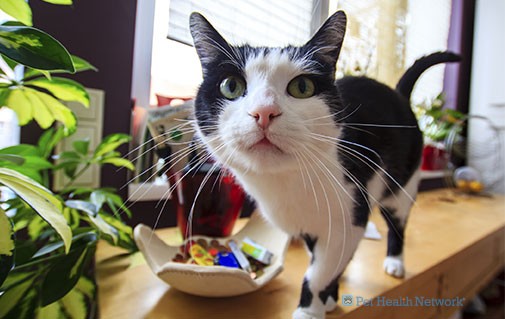
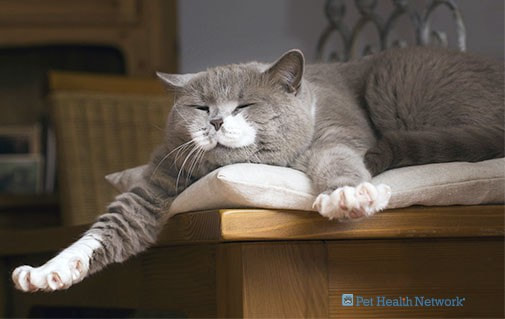
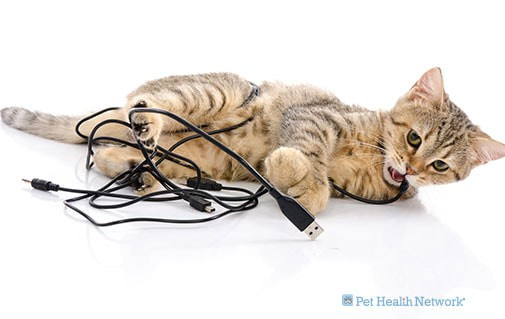
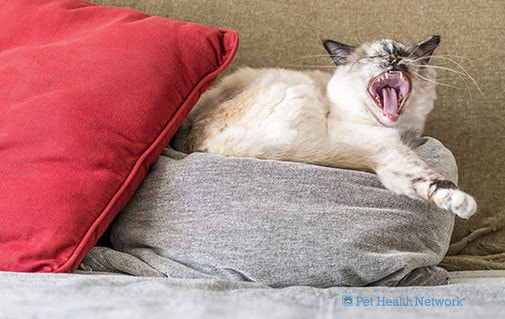
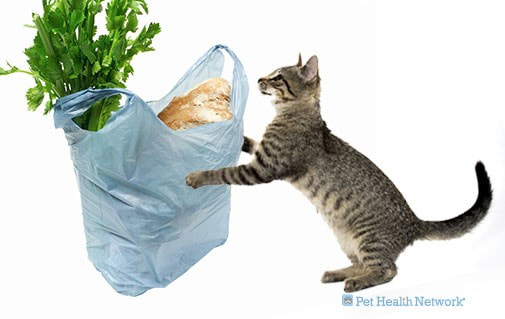
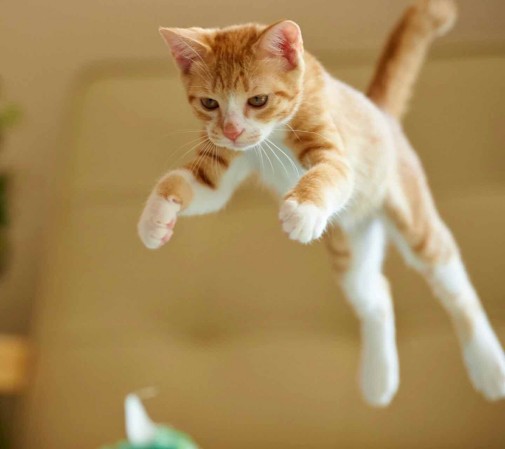
 RSS Feed
RSS Feed
